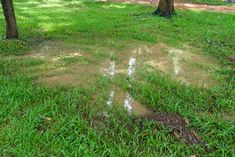Transforming Waterlogged Land: Modern Technology Solutions for Real Estate Development in Nigeria

Introduction:
Waterlogged land poses significant challenges for real estate development in Nigeria, limiting construction opportunities and affecting property values. However, with advancements in modern technology, innovative solutions are emerging to address these issues and unlock the potential of waterlogged areas for sustainable real estate projects.
Geographic Information Systems (GIS) Mapping
GIS technology enables precise mapping of waterlogged land, identifying the extent and severity of the problem. This data helps real estate developers make informed decisions about site selection and design. By incorporating GIS mapping into their planning process, developers can avoid investing in high-risk areas prone to waterlogging, ensuring the long-term viability of their projects.
Remote Sensing and Satellite Imagery
Utilizing remote sensing and satellite imagery provides real-time data on waterlogged areas, allowing developers to monitor changes and assess risks. By analyzing soil moisture levels and water flow dynamics, developers can identify suitable locations for real estate development and implement appropriate mitigation measures. This technology enhances decision-making accuracy, reducing the likelihood of costly waterlogging-related issues during construction and beyond.
Sustainable Drainage Systems
Modern drainage systems designed using computer modeling techniques efficiently manage water on real estate sites, preventing waterlogging. Sustainable drainage practices, such as green roofs, permeable pavements, and rain gardens, help absorb and infiltrate excess water, reducing the risk of flooding and soil saturation. Integrating these systems into real estate projects enhances resilience to waterlogging while promoting environmental sustainability.
Climate-Resilient Infrastructure
Constructing climate-resilient infrastructure, such as raised foundations and flood-resistant buildings, protects real estate developments from waterlogging impacts. By incorporating innovative building designs and materials, developers can minimize damage and ensure occupant safety during extreme weather events. Climate-resilient features enhance the attractiveness and value of properties, appealing to investors and buyers seeking resilient and sustainable housing options.
Integrated Water Management
Implementing integrated water management strategies at the community level fosters collaboration and coordination among stakeholders. By considering water resources holistically and incorporating green infrastructure elements, such as wetlands and retention ponds, developers can mitigate waterlogging risks while enhancing overall water quality and ecosystem health. Integrated water management approaches promote resilience and sustainability in real estate development, contributing to long-term value creation.
Conclusion:
Incorporating modern technology solutions into real estate development processes enables developers to effectively address waterlogging challenges in Nigeria. By leveraging GIS mapping, remote sensing, sustainable drainage systems, climate-resilient infrastructure, and integrated water management strategies, developers can unlock the potential of waterlogged land for sustainable and resilient real estate projects, driving economic growth and environmental stewardship.